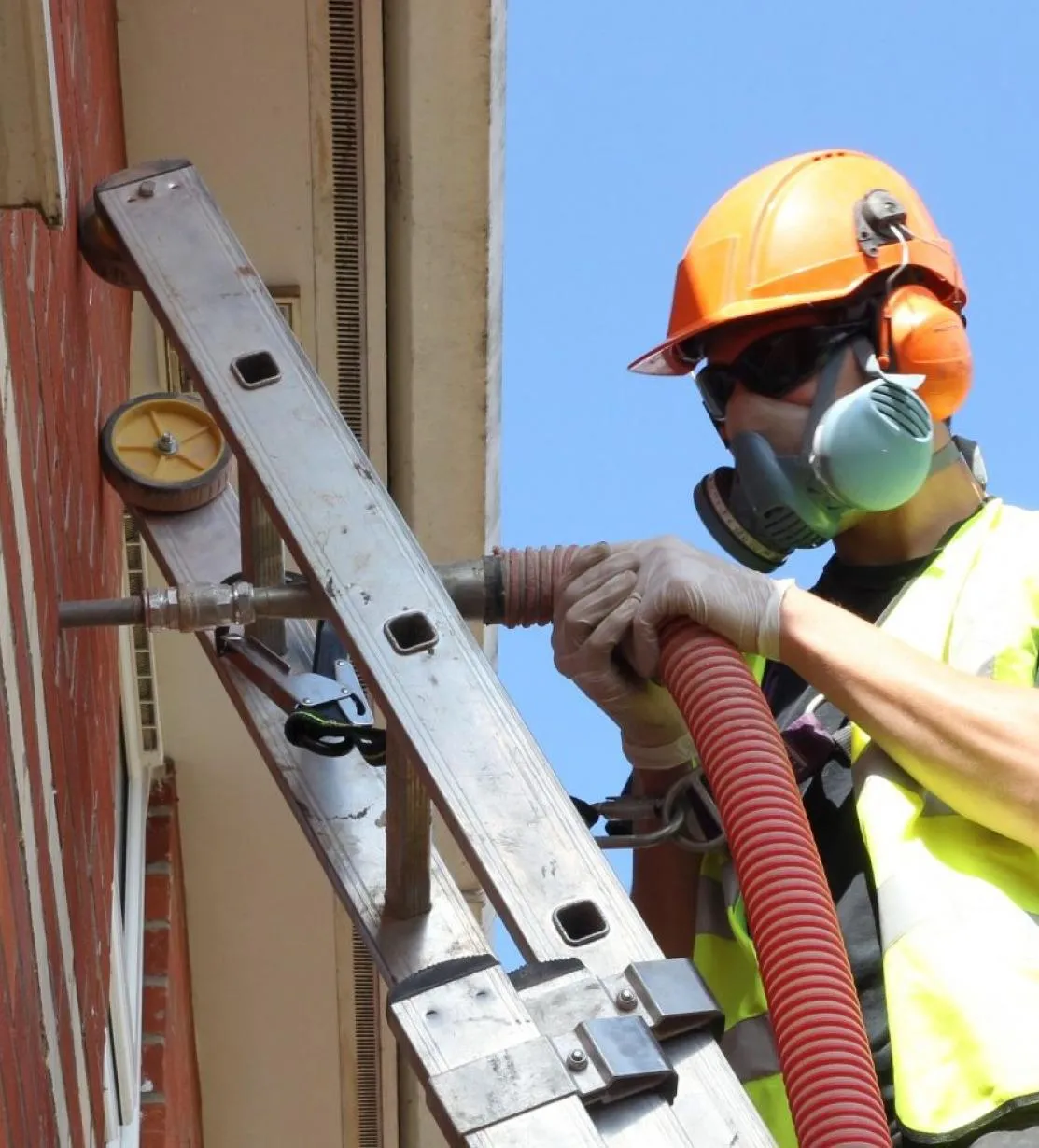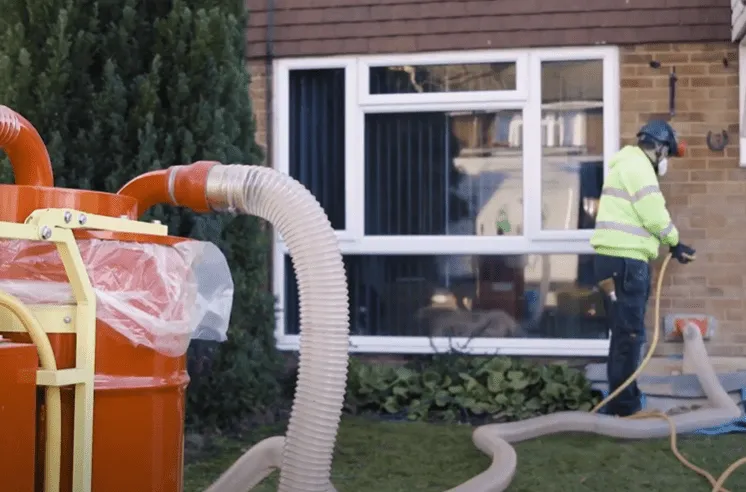AWARD-WINNING DEVON HOME INSULATION INSTALLERS
Reduce Your Energy Bills By Up To 45% With Devons Insulation experts installing Cavity Wall Insulation & Loft Insulation
No.1 Cavity Wall Insulation & Loft Insulation Installers
- 25 Year Insurance Backed Guarantee
- Save Up To 45% Of Heat In Your Home With Home Insulation
- Over 40 Years Industry Experience
- Tailor Made Solutions For Your Home
- Expert Assessors
- Save On Your Heating Bills
- Finance Options Available


AWARD-WINNING DEVON HOME INSULATION INSTALLERS
Reduce Your Energy Bills By Up To 45% With Devons Insulation experts installing Cavity Wall Insulation & Loft Insulation
No.1 Cavity Wall Insulation & Loft Insulation Installers

- 25 Year Insurance Backed Guarantee
- Save Up To 45% Of Heat In Your Home With Home Insulation
- Over 40 Years Industry Experience
- Tailor Made Solutions For Your Home
- Expert Assessors
- Save On Your Heating Bills
- Finance Options Available

CAVITY WALL INSULATION
What is cavity wall insulation and how is it going to help me save money?
That’s why properly insulating cavity walls can help you save energy and cut costs off your heating bill.
While houses built from the 1990s onwards generally have wall insulation, older homes may not have any at all. Most houses in the UK have either solid walls or cavity walls. If your house was built after the 1920s, it likely has cavity walls. A cavity wall is made up of two walls with a gap in between, known as the cavity. The outer leaf is usually made of brick, and the inner layer of brick or concrete block. Pre-1920 homes are more likely to have solid walls, which have no cavity and are usually made of brick or stone.
If this cavity has no insulation or is poorly insulated, it may lose significant amounts of heat and is in need of an upgrade
Did you know that about a third of the heat lost in an uninsulated home escapes through the walls?
Cavity wall insulation is the process of injecting insulation material into the cavity from the outside. A specialist company will drill small holes in the outside walls, inject insulation through the holes, and then seal them with cement. The insulation materials used are bonded beads.
To insulate your cavity walls, the installer drills small holes around 22mm in size at intervals of around 1m in the outside wall of your home. The installer then blows insulation into the cavity using special equipment. Once all the insulation is in, the installer fills the holes in the brickwork so that they’re barely noticeable.
We also offer cavity wall extraction for faulty insulation.

LOFT INSULATION
What is loft insulation?
Is Loft Insulation Right For You?
Loft insulation can be an excellent choice for homeowners looking to improve energy efficiency and reduce heating costs.
While loft insulation solutions are primarily tailored for pitched roofs, it’s crucial to understand that each home’s insulation needs can vary. If you’re uncertain about the compatibility of your roof type with standard loft insulation methods, consulting with professional installers like us is the best course of action. Our expertise allows us to assess your unique situation, recommend suitable insulation options, and ensure efficient installation to optimise energy savings and comfort in your home.
What If I already Have Loft Insulation?
CAVITY WALL EXTRACTION
What If My Property Is Already Insulated With Inadequate Material?

BOOK YOUR FREE SURVEY TODAY
Contact ECO HOME UK & Save on your energy bills through insulating your home today
Why Insulate Your Home With ECO HOME UK?
Insulating your home can help you save money on energy bills by reducing heat loss and improving energy efficiency, while also creating a more comfortable and healthier living environment by reducing moisture, condensation, and noise levels.
Cut Down on Your Energy Bills
Let’s not be coy, saving money on your bills is an appealing prospect no matter where you’re from! You could reduce your monthly bills with proper insulation keeping all the lovely warmth inside your home, so don’t delay in contacting us!
Warmer Home in Winter, Cooler Home in Summer
Want a noticeably warmer December home that cools down by July? A well-insulated home can regulate the temperature throughout your whole property through all four seasons. Best of all, you won’t have to worry about leaving the heating on 24/7, which wastes loads of money and power which in turn saves you money and energy.
Boosts Property Value
Sell your property at a higher price, should you choose to move house. Home insulation can be an attractive feature for potential buyers and can help increase the property's value by improving energy efficiency, comfort, noise reduction, and reducing maintenance costs.
ABOUT ECO HOME UK
At ECO HOME UK we solve your home insulation needs
RETROFIT, PAS 2035 & THERMAL SURVEYS
At ECO HOME UK, we understand the importance of environmental sustainability, and we are dedicated to helping homeowners reduce their carbon footprint through energy-efficient home improvements. Our team of experts has years of experience in the field, and we pride ourselves on our extensive knowledge of the latest insulation technologies, building regulations, and energy efficiency standards.
Proud to be trustmarked which means that we’ve been independently approved by the government to ensure that we meet the highest standards for quality.
Choose ECO HOME UK a company that values your home and the environment.


CAVITY WALL INSULATION & LOFT INSULATION INSTALLERS
Our Insulation Quotation And Installation Process
Insulating your home can help you save money on energy bills by reducing heat loss and improving energy efficiency, while also creating a more comfortable and healthier living environment by reducing moisture, condensation, and noise levels.
What our customers say...

I would not hesitate to recommend this company

Mrs Woodhouse
Professional, friendly, affordable

Paula Maginn
Excellent service

Connor Knapp
Get A Free Quote Today 👇



